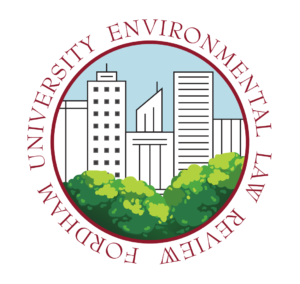Due Diligence: New EU ESG Reporting Standards Expected to Heavily Affect the American Market
Ari Blemur
2L ELR Staffer
Two new Environmental, Social, and Governance (ESG) reporting regulations will be implemented in 2025 and 2027 by the European Union (EU), affecting the sustainability metrics of an estimated 50,000 companies globally. The 2025 regulation is the Corporate Sustainability Reporting Directive (CSRD), and the 2027 regulation is the Corporate Sustainability Due Diligence Directive (CSDDD), both promulgated by the EU. These new reporting regulations will have a large effect on American companies operating in the EU.
CSR and ESG
ESG is a sustainability assessment using environmental, social, and governance metrics to evaluate how sustainable and resilient a company is to hold it accountable for its sustainability claims. Corporate Social Responsibility (CSR) is a management concept in which companies integrate social and environmental concerns into their sustainability strategies to positively impact society while improving brand reputation.
While CSR is regarded as more qualitative, self-regulated, and motivated internally by companies, ESG is mandatorily regulated by the US Securities and Exchange Commission (SEC), US Department of Labor (DOL), individual State legislatures and agencies, and the EU, among other regulatory agencies globally. This does not mean that CSR reporting is less important. For example, CSR disclosures have been cited to heavily influence investment decisions by shareholders from surveys conducted by Morgan Stanley and PwC.
The New EU Regulations: CSRD and CSDDD
CSRD is a set of regulations that will affect all companies operating within countries that are part of the EU, including any US subsidiaries that meet certain criteria. The disclosure requirements for companies were explained in 12 European Sustainability Reporting Standards (ESRS) issued by the European Financial Reporting Advisory Group (EFRAG) and implemented by the European Commission in 2023. These reporting standards will cover companies’ sustainability opportunities, impacts, and risks, including their sustainability targets, progress, products, services, incentive programs, business relationships, and overall strategy.
CSRD will have its initial year of reporting in 2025. This reporting will not be limited to a company’s internal operations. Rather, it will include direct and indirect business relationships across the value chain. The CSRD also uses “double materiality,” a standard that requires that companies report information concerning the impact they have on a range of sustainability matters, including how sustainability affects business development and performance. This requirement, however, runs contrary to the heavily contested assurance requirements implemented by the SEC back in March of 2024, which may cause compliance difficulties in the near future.
CSDDD is a regulatory framework for companies to conduct required human rights and environmental due diligence for themselves, their subsidiaries, and their business partners. A six step due diligence process is set out by the Organisation for Economic Co-operation and Development (OECD) Due Diligence Guidance for Responsible Business Conduct. The six step process is as follows: (1) integrating due diligence into policies and management systems; (2) identifying and assessing adverse human rights and environmental impacts; (3) preventing, ceasing or minimizing actual and potential adverse human rights, and environmental impacts; (4) assessing the effectiveness of measures; (5) communicating; (6) providing remediation. CSDDD went into force in July of 2024, and is expected to be included with CSRD filings in 2027.
The impact of CSRD and CSDDD on American Companies
CSRD and CSDDD will only apply to American companies that meet specific criteria. The criteria include:
- Listing on an EU-regulated market. This includes both EU and non-EU entities with listed debt or equity securities (with limited exceptions).
- Size of unlisted EU companies. “Large” unlisted companies will also be subject to the regulations. “Large” is defined as exceeding certain asset, revenue and workforce size thresholds for two consecutive years. If a company meets two out of three, it is large: more than 250 employees, a balance sheet of over €20 million, or net turnover of €40 million. An EU subsidiary of a US company would be required to report if it exceeds those thresholds.
- “Group” size of unlisted EU companies. Reporting is required for an EU entity (including an EU subsidiary of a US company) if it is the parent of a group that exceeds the same asset, revenue and workforce size thresholds for two consecutive years.
Conclusion
While there has been some resistance against recent CSR and ESG regulations, the EU has consistently been on the international forefront as it pertains to implementing new regulations for public and private companies. If you work for or intend to work with companies that are held to international ESG standards, it’s best to get ahead of the curve.

